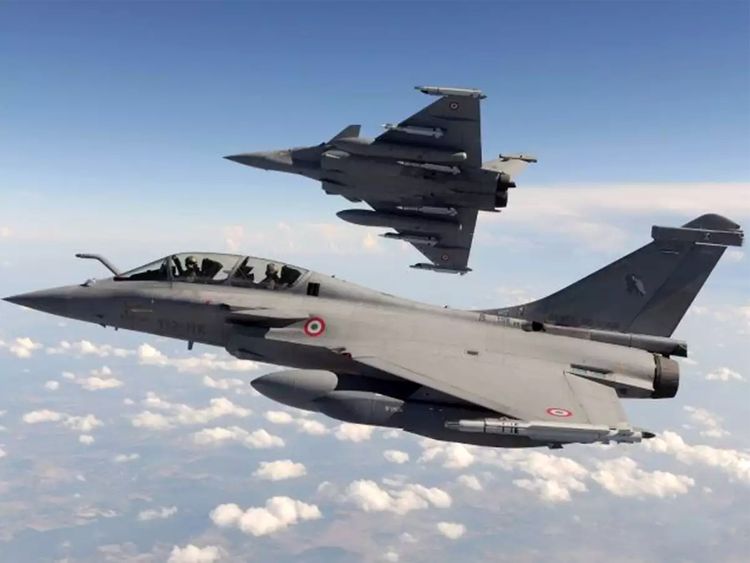The five aircraft will be the first tranche of the 36 planes bought by India from France in a Rs 59,000-crore inter-governmental deal in 2016.
Twelve IAF pilots and engineering crew members are fully trained trained on the Rafale fighter jets.
The aircraft will be refuelled mid-air and on land at French airbase in the United Arab Emirates on their way to Ambala.
The Indian ambassador to France interacted with the Indian pilots before they took off from France.
"Bon Voyage: Indian Ambassador to #France interacts with the Indian pilots of the Rafale. Congratulates and wishes them a safe flight to India with a single hop," the Indian embassy in France tweeted.
The Rafale fighter jets are capable of carrying a range of highly effective weapons, including the Meteor air-to-air missile and Scalp cruise missile.
The Rafale jets will come with various India-specific modifications, including Israeli helmet-mounted displays, radar warning receivers, low-band jammers, 10-hour flight data recording, infra-red search and tracking systems among others.
The Air Force has readied the required infrastructure to welcome the jets in its line-up.
Defence Minister Rajnath Singh, last month, held a telephonic conversation with his French counterpart Florence Parly, who assured the delivery of the first batch of plane would take place as scheduled despite the coronavirus pandemic.
The Air Force has readied the required infrastructure to welcome the jets in its line-up.
Defence Minister Rajnath Singh, last month, held a telephonic conversation with his French counterpart Florence Parly, who assured the delivery of the first batch of plane would take place as scheduled despite the coronavirus pandemic.
Last October, Rajnath Singh had gone on a three-day tour to France to take part in the handover event at a facility of Dassault Aviation in the Merignac area of Bordeaux, around 590 km from Paris. r Singh had taken a 20-minute sortie in the aircraft after performed a pooja.


Comments
Post a Comment